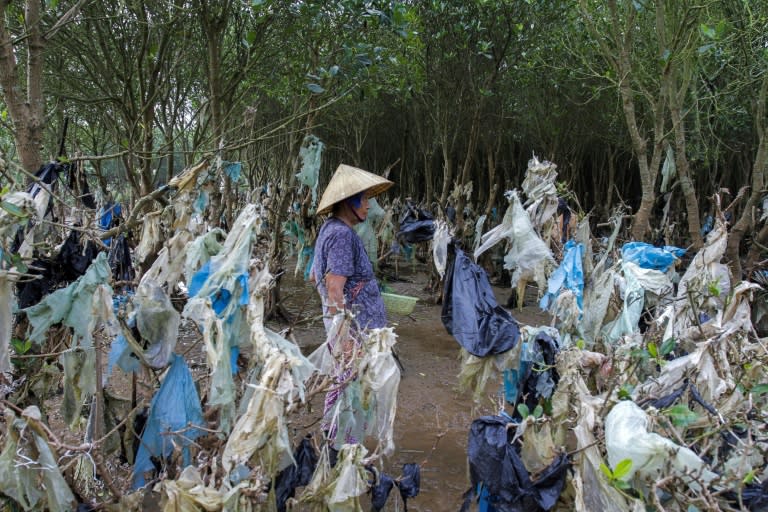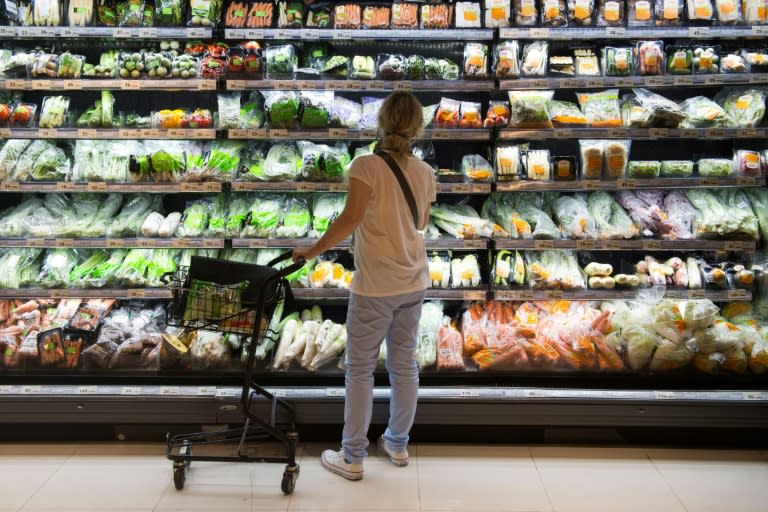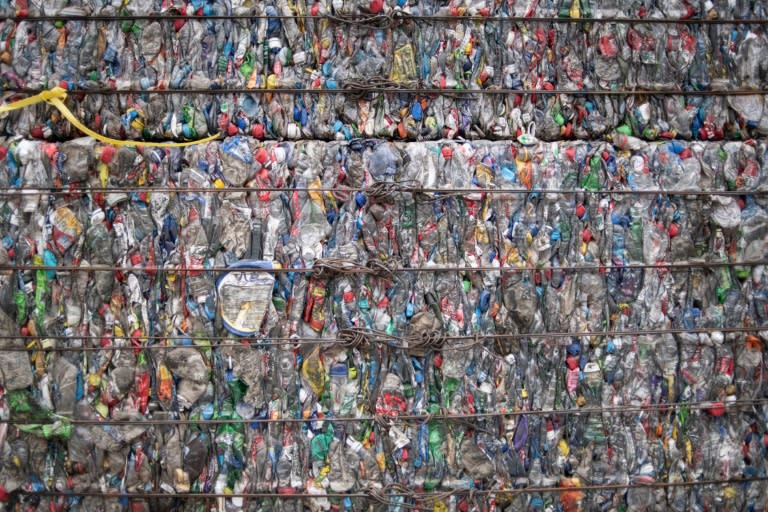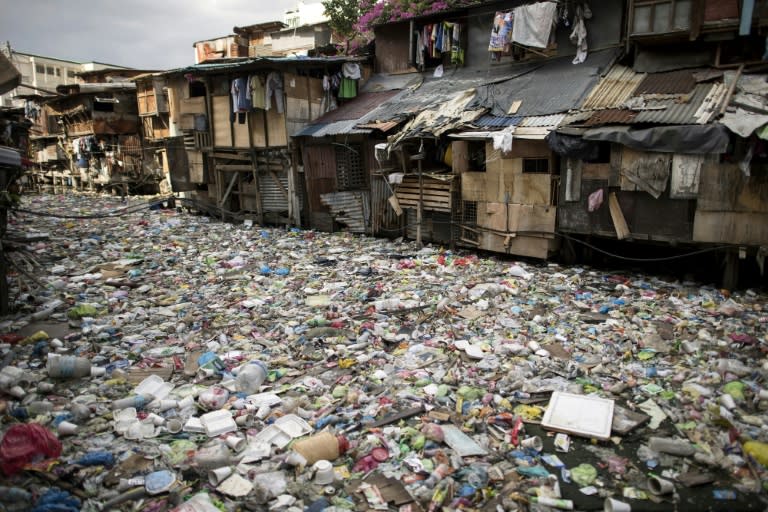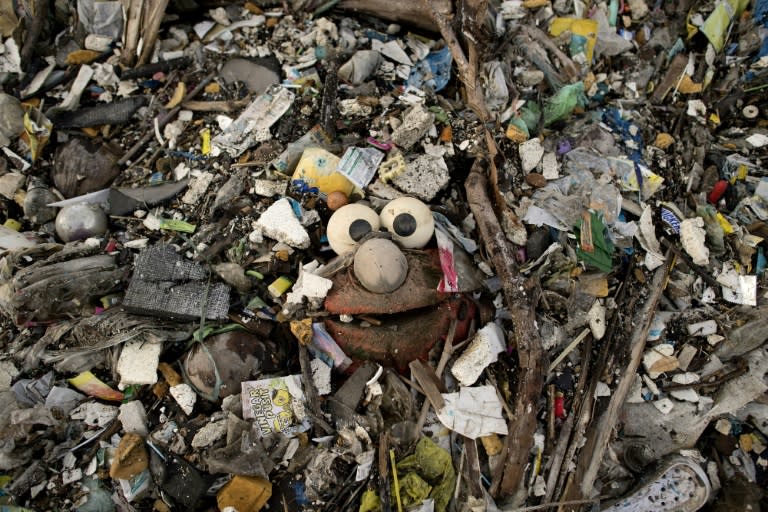Plastic wasteland: Asia's ocean pollution crisis
A Vietnamese mangrove draped with polythene, a whale killed after swallowing waste bags in Thai seas and clouds of underwater trash near Indonesian "paradise" islands -- grim images of the plastic crisis that has gripped Asia. About eight million tonnes of plastic waste are dumped into the world's oceans every year, the equivalent of one garbage truck of plastic being tipped into the sea every minute of every day. More than half comes from five Asian countries: China, Indonesia, the Philippines, Thailand and Vietnam, according to a 2015 Ocean Conservancy report. They are among the fastest growing economies in Asia, where much of the world's plastic is produced, consumed and discarded -- most of it improperly in countries where waste management is at best patchy. "We are in a plastic pollution crisis, we can see it everywhere in our rivers, in our oceans... we need to do something about it," Greenpeace Indonesia campaigner Ahmad Ashov Birry told AFP. World Environment Day on Tuesday is highlighting the perils of plastic with the tagline "if you can't reuse it, refuse it". But it is not just an issue of aesthetics, plastics are killing marine life. Last week a whale died in southern Thailand with 80 plastic bags in its stomach, an increasingly common sight alongside dead seabirds and turtles gorged on plastic and washed ashore. - Invisible threat - Experts warn the greatest threat might be invisible. Microplastics -- tiny shards that easily soak up toxins after breaking off from larger plastic pieces -- have been found in tap water, ground water and inside fish that millions of people eat across Asia every day. Scientists still do not fully understand the health effects of consuming microplastics. "We're conducting a global experiment with no sense of where we're heading with this whole thing," Carl Gustaf Lundin, head of the global marine and polar programme at the International Union for Conservation of Nature, told AFP. That worries Vietnamese fisherwoman Nguyen Thi Phuong, whose sleepy village on the South China Sea coast in Thanh Hoa province has slowly transformed into a dump site over the years. "It's unbearable, people discard their garbage here... it's so polluted for the children, it's not safe," she said in the baking heat thick with the smell of trash and fish. In the nearby mangrove forest, her neighbours dig through warm, trash-speckled mud for snails or shrimp. But the tree branches above are blanketed with faded plastic bags left behind from tidal waters that wash up fresh waste every day. A one-kilometre (half-mile) stretch of beach is lined with sandals, biscuit wrappers, tubes of Japanese toothpaste, juice boxes, fishing nets, furniture and heaps of discarded clothing, as piles of trash burn nearby. "It's hard for us to work here finding shrimp and fish," said fisherman Vu Quoc Viet, who often finds plastic trash in his nets. - More plastic than fish by 2050 - Rubbish collection is low in rural Vietnam as elsewhere in Asia, one of the main reasons why so much plastic ends up in the sea, according to Joi Danielson, programme director of Oceans Plastics Asia at SYSTEMIQ. On average only about 40 percent of garbage is properly collected in the five plastic-addled countries that spit out most of the ocean's trash, with few resources dedicated to proper waste management especially in mushrooming mega-cities. Plus, plastic consumption -- and waste -- continues to balloon along with growing incomes and dependence on plastic products integral to almost every aspect of daily life. "You're battling against this constantly growing target," Danielson told AFP. At the current rate of dumping, the total amount of plastic trash in the world's oceans is expected to double to 250 million tonnes by 2025, according to Ocean Conservancy. That means there could be more plastic than fish in the world's seas by 2050 if the nothing is done to turn the tide. - 'Not rocket science' - Environmentalists are looking to China to lead by example when it comes to tackling the problem. Last year the world's second largest economy said it would stop importing the West's recycling, refusing to be "the world's garbage dump". But the vast majority of China's waste is homegrown and collection remains low in rural areas, according to Danielson. Experts agree that while the problem seems daunting with plastic waste so ubiquitous throughout Asia, it is a crisis with a solution. Social media campaigns calling for plastic bans and viral videos like the one featuring British diver Rich Horner swimming through clouds of trash off the coast of Bali have helped to spark pubic awareness. Improved waste collection and reduced consumption have been flagged as crucial next steps. Ocean Conservancy has also called for new plastic materials and product designs and more investment into waste-to-energy and waste-to-fuel schemes. For Lundin, political will is perhaps the biggest hurdle at the moment. "It's not rocket science... there's no place that couldn't fix it if they decided they had to," he said.

